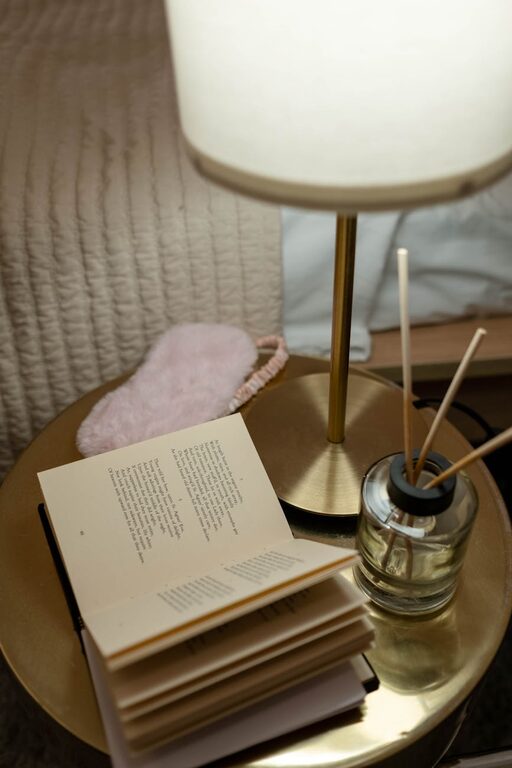A good night’s sleep is essential for overall well-being, yet many find it difficult to unwind and fall asleep easily. Creating a relaxing bedtime routine can make a significant difference by signaling to your body that it’s time to rest. In this post, we will guide you through practical tips and ideas to build a peaceful nightly ritual that helps you relax and prepare for a deep, restorative sleep.
Why a Bedtime Routine Matters
Our bodies thrive on consistency. Establishing a predictable sequence of activities before bed helps regulate your internal clock, also known as the circadian rhythm. By practicing calming habits at the same time each evening, you train your brain to recognize cues that it’s time to switch gears from the busyness of the day to rest and relaxation.
Benefits of a bedtime routine include:
– Easier time falling asleep
– Improved sleep quality
– Reduced stress and anxiety
– Better mood and energy the next day
How to Create Your Perfect Bedtime Routine
Building an effective routine is about choosing activities that help you destress and feel comfortable. Here’s a step-by-step guide to designing your personalized wind-down routine.
1. Set a Consistent Sleep Schedule
Try to go to bed and wake up at the same times every day, even on weekends. Consistency strengthens your sleep-wake cycle, making it easier to fall asleep naturally at night.
2. Wind Down at Least 30 Minutes Before Bed
Dedicate the last half-hour before sleep for calming activities. This buffer period helps transition from daytime alertness to nighttime relaxation.
3. Limit Screen Time
The blue light emitted by phones, tablets, and computers can interfere with melatonin production, a hormone that signals your body to sleep. Avoid screens at least 30 minutes before bedtime or use blue light filters if necessary.
4. Create a Calm Environment
Make your bedroom a cozy sleep sanctuary:
– Dim the lights
– Adjust the room temperature to a comfortable coolness
– Use calming scents like lavender with a diffuser or pillow spray
– Keep noise low; consider a white noise machine if needed
5. Choose Relaxing Activities
Pick one or more calming actions to include in your routine. Some popular options are:
– Reading a book: Choose light, enjoyable material—avoid anything too stimulating or stressful.
– Gentle stretching or yoga: Helps release tension from the body.
– Breathing exercises or meditation: Focused breathing can lower heart rate and calm the mind.
– Journaling: Write down your thoughts or list things you’re grateful for, which can ease worries.
– Listening to soft music or nature sounds: A soothing soundtrack can help shift your mood toward calmness.
6. Avoid Heavy Meals and Caffeine Late in the Day
Eating a large meal or drinking caffeine too close to bedtime can disrupt sleep. Try to finish eating at least 2-3 hours before you plan to sleep, and limit caffeine intake after mid-afternoon.
7. Stay Hydrated, But Not Too Much
Drink enough water during the day to stay hydrated, but reduce intake right before bed to avoid waking up for bathroom trips.
Sample Relaxing Bedtime Routine
Here’s an example of how you might structure your evening to prepare for sleep:
– 8:30 PM: Turn off screens and dim the lights
– 8:35 PM: Stretch gently or do a 5-minute meditation
– 8:45 PM: Read a book or write in a journal
– 9:15 PM: Wash your face and brush your teeth
– 9:30 PM: Get into bed and listen to calming music as you drift off
Adjust timings and activities to fit your lifestyle and preferences.
Tips for Sticking to Your Routine
Consistency is key. Here are ways to help you maintain your bedtime habit:
– Set reminders on your phone for when to start winding down
– Prepare your bedroom environment earlier in the evening
– Share your routine goals with a friend or family member for support
– Keep your routine simple and enjoyable to avoid feeling like a chore
When to Seek Help
If you continue having trouble sleeping despite a relaxing bedtime routine, it may be helpful to consult a healthcare professional. Persistent sleep difficulties can sometimes signal underlying health issues that need attention.
—
Final Thoughts
Creating a relaxing bedtime routine is a valuable investment in your sleep health and overall quality of life. With a little planning and consistency, you can design a nightly ritual that helps calm your mind, ease your body, and prepare you for peaceful rest. Start small, be patient with yourself, and enjoy the positive changes over time.
Sleep well!

